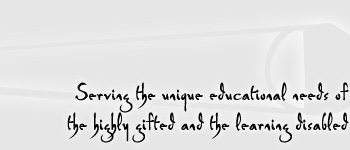














Cheetahs on the Couch:
Issues Affecting the Therapeutic Working Alliance
With Clients Who Are Cognitively Gifted
Doctoral Dissertation, Aimee Yermish, 2010
Abstract
Within the gifted community, the common wisdom is that one must find a therapist who understands the intrapersonal, social, and cultural experiences of being highly intelligent. Without this understanding, informal reports suggest that miscarriages of the therapeutic working alliance may be frequent, and that clients may avoid or leave therapy as a result. However, few therapists or researchers acknowledge intelligence as a dimension of human difference which could be relevant to therapy, or how their own relational selves might be affected by the prospect of doing this work. The specialist literature in the field of giftedness rarely includes consideration of mainstream psychological theories. Thus, little is widely known about how to effectively engage these clients, and there are few opportunities for therapists to recognize when they are making mistakes or to develop competence with this group. This study used a consensual qualitative research model (Hill, Thompson, & Nutt-Williams, 1997), in an attempt to connect these two areas of the literature. Individuals who self-identify as gifted and who have previously been clients in individual or family therapy were asked to describe their felt experiences of the alliance, helpful or unhelpful therapist behaviors, and how the course of therapy may have been affected. The responses were analyzed thematically and interpreted through the lenses of the specific literature on giftedness and mainstream psychological theories. Respondents in this study described their intelligence as having pervasive effects on their lives, the material they wished to explore in therapy, and the therapeutic relationship itself. Substantial connections to the theoretical literature on trauma and object relations were considered in relational context. Additionally, the data permitted some exploration of the general question of whether some differences between therapist and client may be too great to bridge. Finally, a set of provisional clinical guidelines for working with gifted clients was developed.
If you'd like to read the whole thing...
I believe in the concept of the Global University, that we are all just human beings trying to understand the world together, and that we do best when researchers share knowledge openly. Furthermore, I am aware that the people I most wish to reach with my research, therapists who think there is nothing they need to know about working with gifted clients, would be the people least likely to want to pay for a copy. Therefore, when I submitted my dissertation to the ProQuest / University of Michigan database, I paid extra to ensure that anyone who wished to read it could do so for free. UMich and Proquest don't make their usual $42 per downloaded PDF, and I gave up my rights to receive royalties through their sales of PDFs and bound copies.
If you want to read it, I want you to read it. No strings attached.
On the other hand, I have invested an immense amount of time and money in pursuing this degree. I am not averse to receiving money for the work; I just don't want anyone to not read it for financial reasons. If you feel that my research is of value to you... if you feel that it spoke to your experience... if you would like to recognize its value to others... then I would encourage you to make a donation using the button below. Buy me a cup of coffee, or pay my student loans for a month, whatever suits your sense of what you can afford and what value you feel the work has brought. For whatever you contribute, or even if your circumstances are such that you cannot contribute anything, I thank you.
You can read the entire text of the dissertation here.
You can read the provisional clinical guidelines I developed for therapists who wish to work with gifted clients at the end of the dissertation, or in a standalone file here.
Copyright Notice
Please understand that I retain full copyright to the entire work. If you would like to link to this page, please do. You may not redistribute the linked PDF or post the content (other than short excerpts for reviewing purposes) in any other way in any forum. If you would like to talk with me about any other plans you might have to increase the visibility or impact of this work (e.g., if you are a college professor who would like to use part of it in a course you are teaching), I am certainly open to discussion.
Thank you very much!

 |
 |
 |
 |